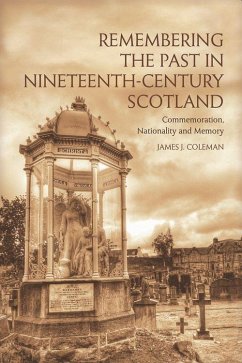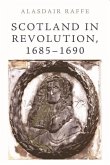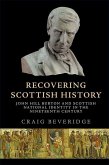'A salutary warning to today's politicians and pundits. Even the recent past is too slippery to be invoked convincingly by either side in the referendum debate. Nineteenth-century Scots constructed a national mythology in which the ecclesiastical trumped the political, and where unionism and nationalism were complacently conjoined.' Colin Kidd, University of St Andrews How the significance of Scotland's past changes through the centuries At a time when the Union between Scotland and England is once again under the spotlight, this book examines the way in which Scotland's national heroes were once remembered as champions of both Scottish and British patriotism. Whereas 19th-century Scotland is popularly depicted as a mire of sentimental Jacobitism and kow-towing unionism, this book shows how Scotland's national heroes were once the embodiment of a consistent, expressive and robust view of Scottish nationality. Whether celebrating the legacy of William Wallace and Robert Bruce, the reformer John Knox or the Covenanters, 19th-century Scots rooted their national heroes in a Presbyterian and unionist view of Scotland's past. Examined through the prism of commemoration, this book uncovers collective memories of Scotland's past entirely opposed to 21st-century assumptions of medieval proto-nationalism and Calvinist misery. James J. Coleman is a freelance historian specialising in the cultural history of 19th-century Scotland and Europe. Cover image: The Wigtown Martyrs Monument in the Old Town Cemetery, Stirling (c) Ian Woolner, 2012 Cover design: www.paulsmithdesign.com [EUP logo] www.euppublishing.com








